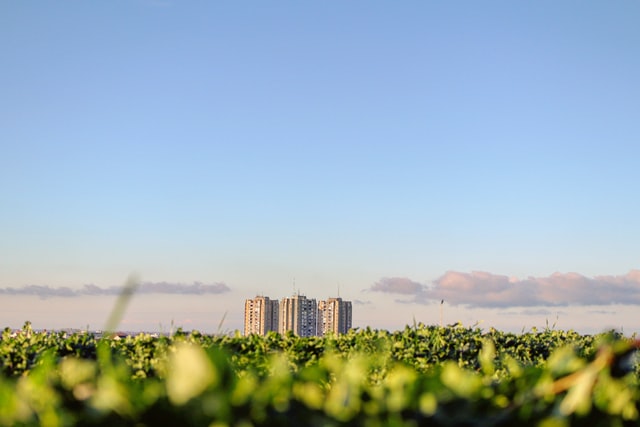4 June 2020.
Sustainable trade after COVID-19: Can we do better? was the question asked in a multi-stakeholder panel discussion convened by H.E. Mr Chad Blackman with the support of the World Trade Organization (WTO) Secretariat -“Yes, we can and must do better”, was the clear and overwhelming response.
On June 4th 2020, GCRF Trade Hub partner UNEP joined a webinar organized by the WTO Secretariat to discuss the role of trade policy in promoting a more sustainable, resilient, and inclusive economy in the aftermath of COVID-19. The multi-stakeholder panel discussion took place on World Environment Day and amidst global debates on economic strategies and responses following the COVID-19 pandemic.
Moderating the discussion, Director of the WTO Trade and Environment Division, Aik Hoe Lim stressed that it was now time to discuss how the trade system can step-up its efforts to promote a sustainable and resilient economy after the COVID-19 crisis. Hoe Lim added that the crisis also provides a “window of opportunity that should not be missed”, a sentiment shared by WTO Director-General Azevêdo, who joined the panel via a video message.
Azevêdo emphasized that “protecting the planet is not a luxury – it is a necessity”, a fact that should not be forgotten during the current health crisis. Environmental stressors, such as natural disasters, resource scarcity, and disease, can make societies more vulnerable to COVID-19 related challenges. The answer to the panel’s question was therefore a clear yes – “yes, we can do better.” To this end, the Director-General highlighted that the WTO stands ready to support its Members in finding solutions to promote sustainability, resilience, and inclusiveness in the aftermath of the crisis.
Session moderator Hoe Lim subsequently invited each of the panel’s speakers to present their perspectives on how trade policies can more effectively promote a sustainable economy following COVID-19, and their views are summarized below.
H. E. Chad Blackman, Ambassador of Barbados to the WTO, current Chairman of the WTO Committee for Trade and the Environment (CTE), and convener of the panel discussion, began by highlighting the important role of the CTE in fostering cooperation and dialogue on environment and trade. Indeed, “if there was ever a time for the CTE – it is now.” H. E. Blackman added that to “imagine trade in a world that is sustainable,” three conditions would need to be fulfilled. First, an intensification of dialogues on sustainable trade; second, an invigoration of efforts to make trade policy more supportive of environmental endeavours; and third, the finding of imaginative ways in which to make trade more resilient.
H. E. Andrew Staines, Ambassador of the United Kingdom to the WTO, highlighted the important role of trade for innovation and technology. He also stressed the need to maintain momentum on relevant multilateral negotiations at the WTO, including ongoing negotiations on the prohibition of harmful fisheries subsidies. Looking forwards, H. E. Ambassador Staines underlined the upcoming COP26 in Glasgow, scheduled for November 2021, as a unique opportunity for the world to unite and increase ambition on climate change.
The journalist Daphne Ewing-Chow, Senior Contributor with Forbes for the Caribbean region, emphasized the importance that trade holds for the Caribbean, while highlighting some of the region-specific challenges further aggravated by the COVID-19 crisis. Ewing-Chow added that the region can nevertheless draw from an enormous resilience, which has become an important resource in the Caribbean’s response to the crisis.
Diane Holdorf, Managing Director of the Food and Nature Programme at the World Business Council for Sustainable Development, provided insights from a private sector and producer perspective. Holdorf confirmed that sustainable trade can be an important tool to build more sustainable and resilient food supply chains, while noting that a good understanding on local environmental, social and economic impacts of production was necessary for producers to make informed decisions in this regard.
Steven Stone, Chief of the Resources and Markets Branch of the United Nations Environment Programme (UNEP), acknowledged that trade policy can make an important contribution to a more sustainable world economy. However, at the same time, a careful balancing of the impacts of trade was necessary. Stone highlighted findings from a UNEP International Resource Panel report, which found that 40% of resources world-wide are being traded, generating significant upstream resource requirements. Trade can therefore be viewed as a “double-edged sword”, and one that needs to be employed carefully.
Céline Charveriat, Executive Director of the Institute for European Environmental Policy (IEEP), said that progress on internalizing environmental costs of trade have been insufficient. Charveriat added that the current debates around trade seemed to be fixed on a classical liberalization agenda, while the many necessary steps to decarbonize and transform our economy are lagging. Instead, efforts should be focused on the transition to a green economy, the creation of circular economy standards, liberalizing green trade, and promoting structural economic reform.
The panel discussion was brought to a close by Carolyn Deere Birkbeck, senior researcher at the Geneva Graduate Institute. Birkbeck stressed that “to build not just back, but also forward better, we need high-level political leadership”, highlighting the WTO Member-States’ initiative to develop an ‘Agreement on Climate Change, Trade, Environment, and Sustainability’, and the Finance Minister’s ‘Climate Change Coalition’ as positive movements in this regard. Birkbeck further called on the WTO to progress its work on three fronts: first, to advance the existing environmental agenda at the WTO, and link the environment to sustainable agriculture and healthy food systems; second, to mainstream the environmental agenda and scientific evidence on environmental challenges across the WTO; and, third, to create an independent interdisciplinary panel at the WTO that can assess and advise on sustainability impacts and opportunities.
NOTE: As a partner organization of the UKRI GCRF TRADE Hub, the UNEP Trade Unit, situated within UNEP Resources and Markets Branch, co-leads the work of the TRADE Hub on public sector impacts and solutions, together with UNEP-WCMC, for a global trading system that benefits people and planet.
WTO WEBINAR: Sustainable trade after Covid-19: Can we do better?
